What Were They Thinking? Exploring Teenage Brain Development: A Lesson Plan for High School Students
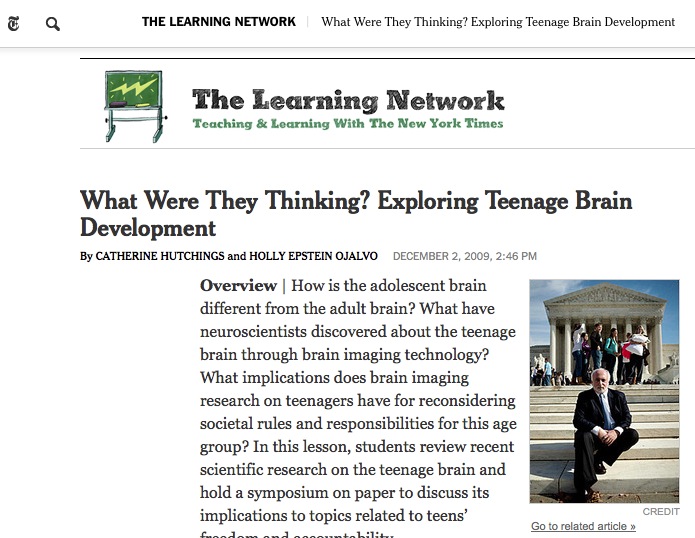
This New York Times’ lesson plan was created to introduce students to the adolescent brain. By the end of the lesson, students should be able to answer the lesson’s guiding question: What implications does brain imaging research on teenagers have for reconsidering societal rules and responsibilities for this age group? Developed by: Teaching and Learning… Read More ›
Data Use for Improved Learning
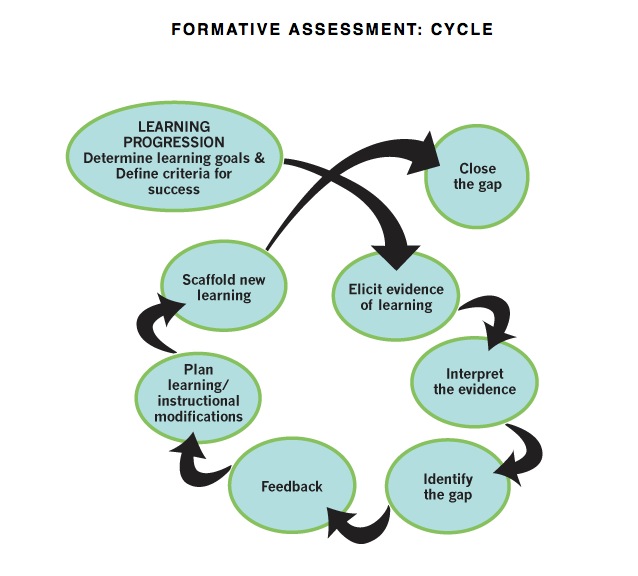
Data Use for Improved Learning provides information and strategies related to several types of assessments, including an extensive section on formative assessment. This site is no longer being updated as of 2013 but will still prove quite useful for educators looking for assessment resources. Created by: The National Center for Research on Evaluations, Standards, and… Read More ›
Neuroscience & the Classroom: Making Connections
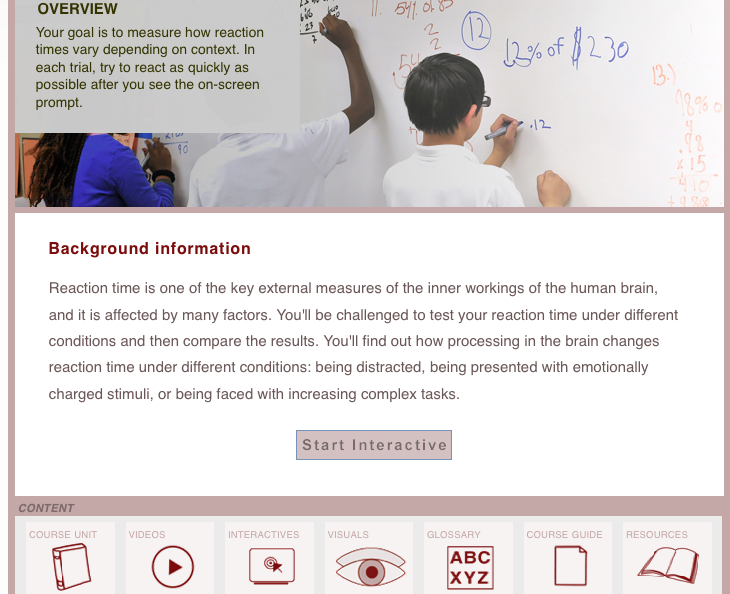
Neuroscience & the Classroom: Making Connections is an online course on the implications of neuroscience research on education. Developed by Annenberg Learner, the course consists of six units and features researchers and famous case studies in neuroscience. Audience: Educators, pre-service educators, professional development providers Potential Use: Professional development – self-guided or group. This course can… Read More ›
Students at the Center Newsletter – April 2014
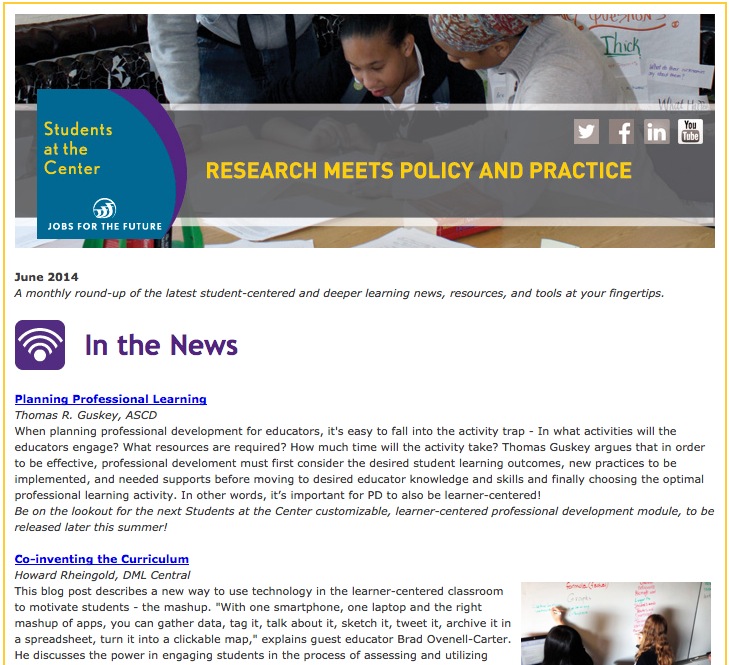
View the April 2014 newsletter for the latest publications, articles, tools, and announcements from Students at the Center! Subscribe to the Students at the Center Mailing List
Students at the Center Newsletter – March 2014
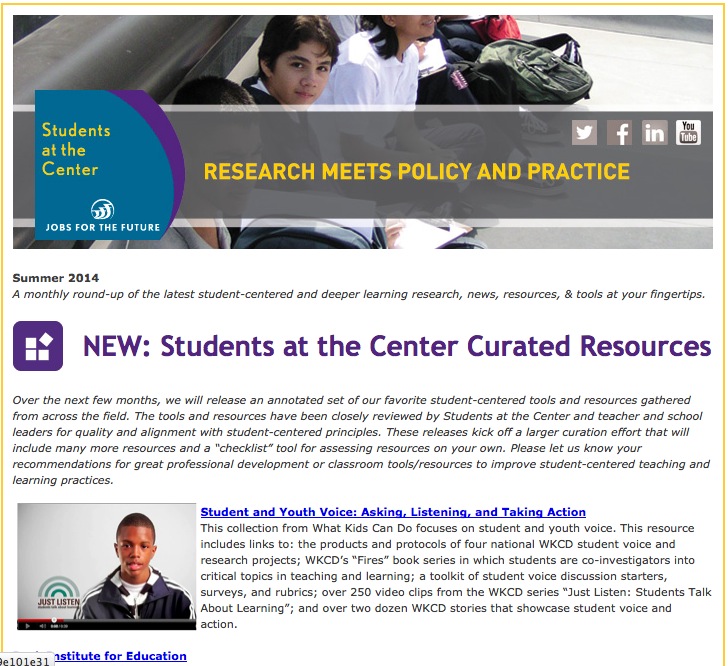
View the March 2014 newsletter for the latest publications, articles, tools, and announcements from Students at the Center! Subscribe to the Students at the Center Mailing List
Proficiency-Based Learning Simplified: Supporting Students with Disabilities

How can proficiency-based learning serve students with disabilities? When successfully designed and executed, a proficiency-based system can improve and accelerate learning for all students, clarify academic expectations, enable differentiated instruction, refocus teachers on the assessment of learning rather than compliance, and–above all–ensure equitable access to the curriculum and multiple opportunities for success. In a proficiency-based… Read More ›
PISA in Context

The confetti has been swept up, the cheering quieted, and the headaches dissipated. New Year’s celebrations? No, the release of the PISA 2012 results. While some countries celebrated their glowing results, others, like the United States, swallowed pangs of disappointment. Though much of the furor has now died down, the implications and lessons of PISA… Read More ›
Students at the Center Newsletter – February 2014
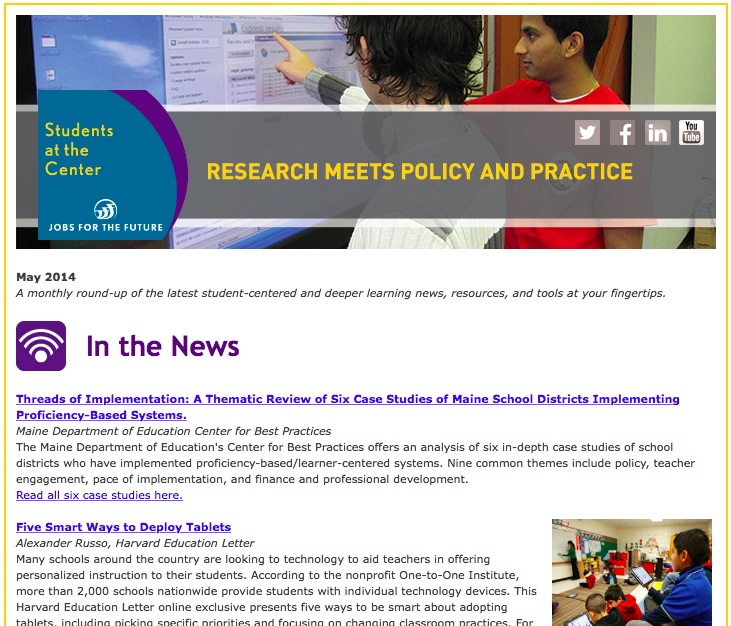
View the February 2014 newsletter for the latest publications, articles, tools, and announcements from Students at the Center! Subscribe to the Students at the Center Mailing List
What is Blended Learning?

This five-minute video advocates for bringing the blended learning approach—mixing the use of personalized education technology with hands on classroom work, to students nationwide. It features footage of principals, teachers, parents, and students explaining the approach and its benefits, including increasing student engagement and ownership of their own learning through personalization. The Learning Accelerator, which… Read More ›
Mobility, Connection, Support: Nudging Learners to Better Results
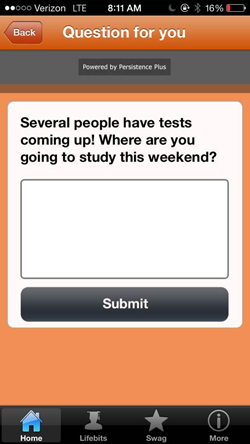
Neuroscience research tells us that the adolescent brain is still developing beyond the teenage years, but what does this mean for student motivation and engagement? The University of Washington Tacoma, in partnership with Persistence Plus, explores the use of mobile “nudging” to help students succeed and persist in post-secondary education. Visit the Resource →
Students at the Center Newsletter – January 2014

View the January, 2014 newsletter for the latest publications, articles, tools, and announcements from Students at the Center! Subscribe to the Students at the Center Mailing List
In Charge: Student-Led Conferences at Pittsfield Middle High School
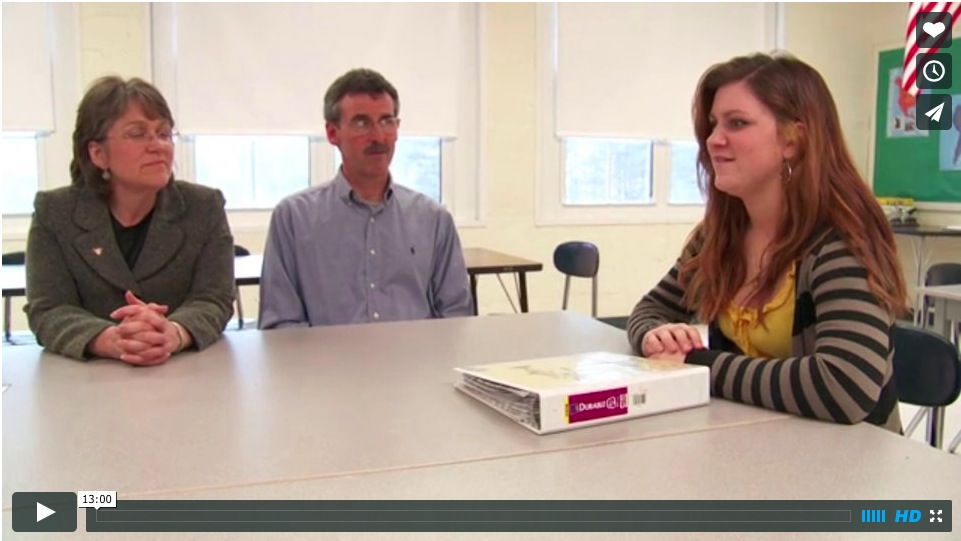
A small rural school in southern New Hampshire is undergoing major school change towards more student-centered learning. This video showcases their work with Student-Led Conferences, in which high school students prepare a portfolio of work and lead a presentation with their parents, advisor, and invited guest. Attendance at the conferences is far higher than the… Read More ›